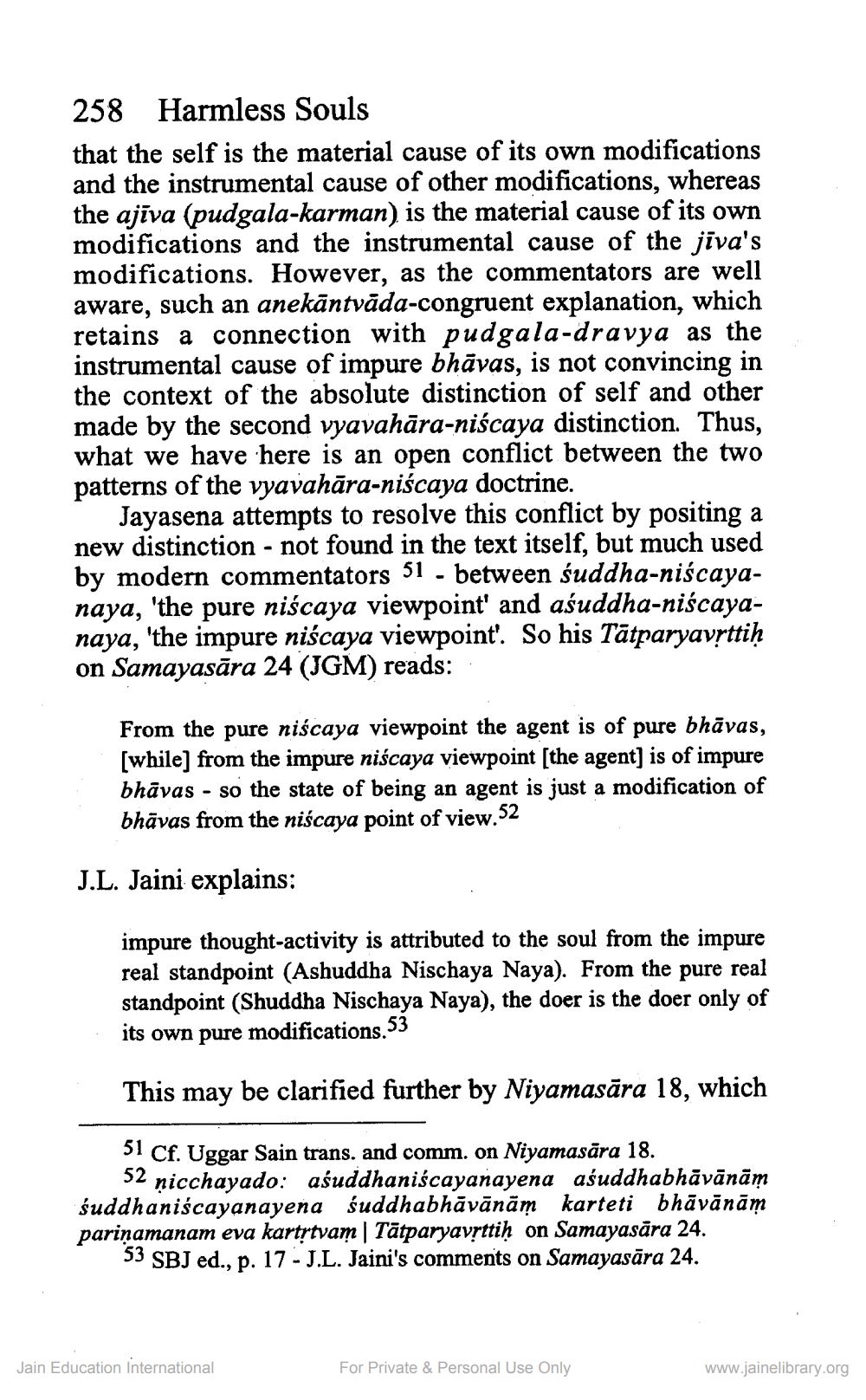________________
258 Harmless Souls that the self is the material cause of its own modifications and the instrumental cause of other modifications, whereas the ajīva (pudgala-karman) is the material cause of its own modifications and the instrumental cause of the jīva's modifications. However, as the commentators are well aware, such an anekāntvāda-congruent explanation, which retains a connection with pudgala-dravya as the instrumental cause of impure bhāvas, is not convincing in the context of the absolute distinction of self and other made by the second vyavahāra-niścaya distinction. Thus, what we have here is an open conflict between the two patterns of the vyavahāra-niscaya doctrine.
Jayasena attempts to resolve this conflict by positing a new distinction - not found in the text itself, but much used by modern commentators 51. between śuddha-niscayanaya, 'the pure niscaya viewpoint' and aśuddha-niscayanaya, 'the impure niscaya viewpoint. So his Tātparyavrttiḥ on Samayasāra 24 (JGM) reads:
From the pure niscaya viewpoint the agent is of pure bhāvas, [while) from the impure niścaya viewpoint (the agent] is of impure bhāvas - so the state of being an agent is just a modification of bhāvas from the niscaya point of view.52
J.L. Jaini explains:
impure thought-activity is attributed to the soul from the impure real standpoint (Ashuddha Nischaya Naya). From the pure real standpoint (Shuddha Nischaya Naya), the doer is the doer only of its own pure modifications.53
This may be clarified further by Niyamasāra 18, which
51 Cf. Uggar Sain trans. and comm. on Niyamasāra 18.
52 nicchayado: aśuddhaniscayanayena aśuddhabhāvānām śuddhaniscayanayena śuddhabhāvānām karteti bhāvānām pariņamanam eva kartytvam | Tātparyavrttiḥ on Samayasara 24.
53 SBJ ed., p. 17 - J.L. Jaini's comments on Samayasāra 24.
Jain Education International
For Private & Personal Use Only
www.jainelibrary.org




